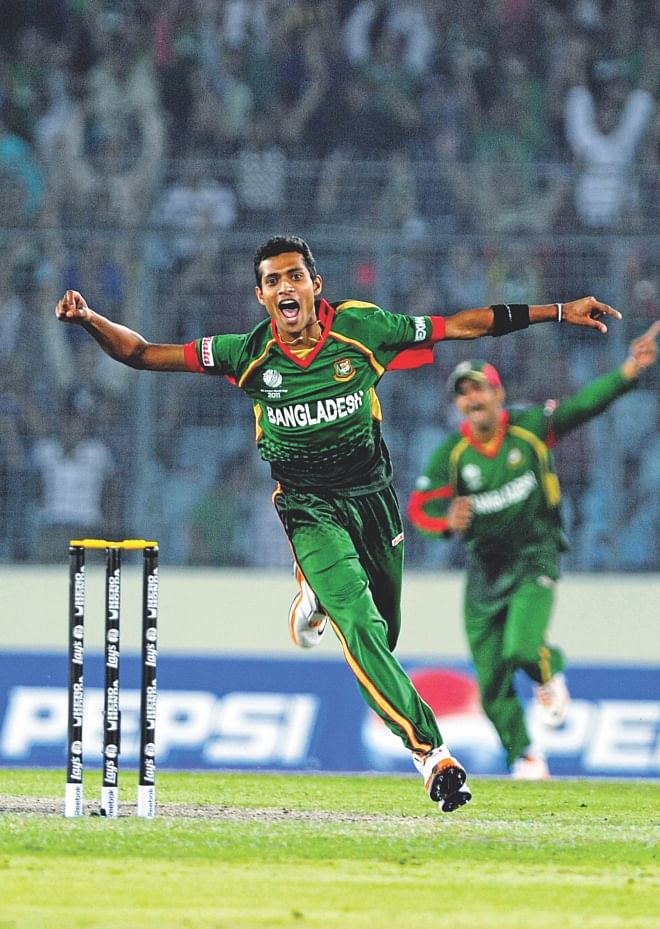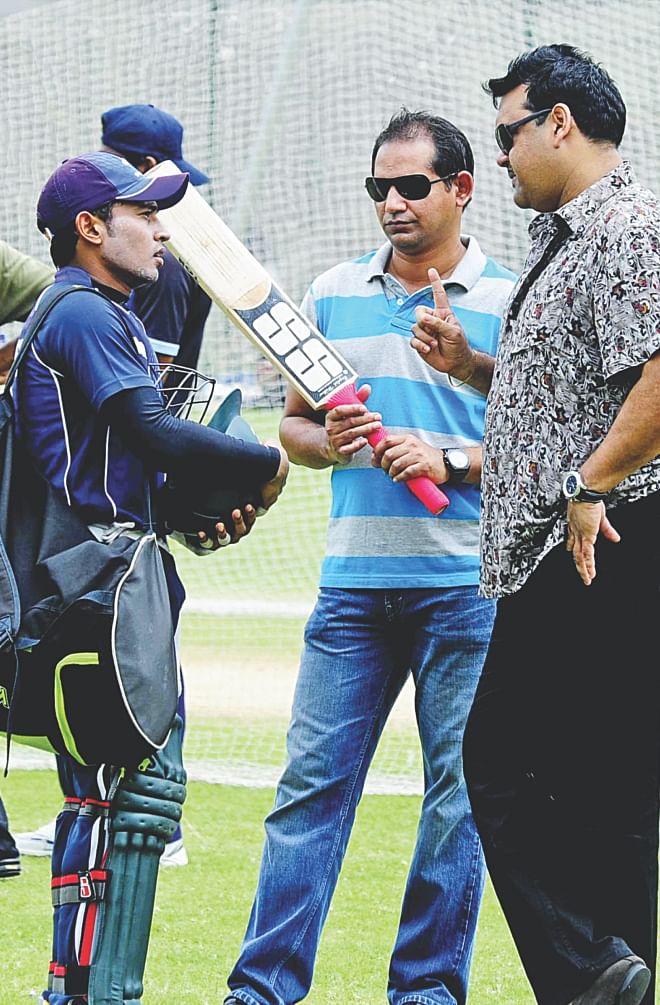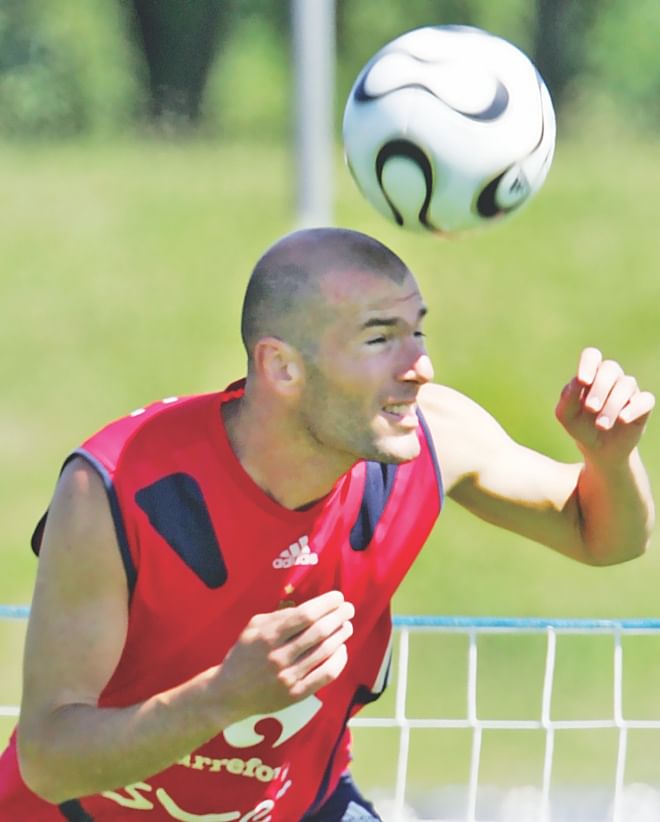Professionalism is the need of the hour

The story goes that when David Beckham attended his first training session at Real Madrid following his transfer from Manchester United, he hit the showers straight after an intense morning of drills. Freshly bathed, Beckham emerged from the locker room to the sight of one hapless soul still out on the pitches practising one rudimentary drill over and over. The player would kick the ball up as high as he could and then seamlessly position himself under it to practice receiving it with the lightest of touches. Assuming that it was a youngster eager to make his mark on the Madrid hierarchy, Beckham went out to have a nice word. Imagine his shock then, when he realized that the footballer in question was Zinedine Zidane.
It may be a small high-profile example, but it goes to illustrate exactly how important professionalism is in the world of sport these days. If you have ever had the privilege of watching Zidane upfront or on television, you could be forgiven for not taking into account his preparation. With Zidane, everything looked so smooth, so pleasing, so natural that it was easy to forget the six days of preparation that preceded every Saturday at the Santiago Bernabeu or elsewhere.
But the rule of the sporting world is now simple. Either your approach is professional or you fall by the wayside like countless, nameless would-be stars. Even Zidane knew that.
There was a time, not too long ago, when football players battled on the pitch every Saturday afternoon and then celebrated with a pint (or more) at the local pub. Even in the 90s, players like Tony Adams and Paul Gascoine were noted as much for their exploits on the green as their local pubs. South Asian cricketers excused themselves a few plates of holiday biriyani and the uber-talented West Indian cricketers of the 70s and 80s will always represent the halcyon days of yore -- they could spend the night in a buzz of adrenaline-fuelled frenzy but still walk out the next morning and score a century or grab a five-for.

In truth, while these still make good stories to tell around campfires or to reminisce on weekends, the world of sport has swiftly but undeniably made the jump to become less of a pastime and more of a profession. With good reason too; as the monetary sums doled out to these international superstars become increasingly eye-watering, the need to maintain better management structures to sustain success have become more important. In general, the more matured your standing in the sporting world, the more professional you most likely are.
Specifically in South Asia, the term 'professional' has always had some negative undertones. It has come to be increasingly associated with a money-grabbing individual who puts financial gain ahead of their performance. But that is an increasingly narrow-minded view of the word, and it is perhaps that which has held back countries in this region, including Bangladesh, to adopt these approaches to all aspects of sports.
At present, sports in Bangladesh stand at a crucial precipice. In some aspects, our talent has superseded our management abilities and in cricket, we have a sport (recent uprising notwithstanding) in which we can make a truly global impact. The question facing us is whether we can adopt a truly professional aspect to make this growth sustainable. If we can, there is a real chance of making a large scale impact, if we can't we risk throwing away some of our best talent through years in the doldrums.
There are good examples from the cricket world itself to borrow. In Australia, the powers that be were so ruthlessly professional that Test cricketers always found themselves with a maximum of a five-year window for performance. Additionally, even established names like Steve Waugh were unceremoniously ditched if they felt that performance standards had deviated to an unacceptable percentage. This kind of thinking often seemed harsh and emotionless on the surface, but yielded an almost unprecedented era of domination of the sport for the Aussies.

If we are indeed looking for a script to follow, using the Australian example would be a great benchmark. For cricket in Bangladesh to really yield results, professionalism should dominate the agenda both on and off the pitch. In its core form, professionalism for an individual is the development of conduct, qualities and characteristics that would hone his skills to the maximum possible amount. Think about how Cristiano Ronaldo is famously teetotal or about how Ryan Giggs is in bed by eight every night. These things don't make good copy, so hardly get reported in the press, but the phenomenal work ethic in every aspect of life shown by top level sportsmen is something that Bangladeshi cricketers can borrow. There are examples close to home. Within local circles, Mushfiqur Rahim's name always comes up as a cricketer who gets this. It is perhaps one of the reasons that Mushfiqur was made captain of the Bangladesh side – the coaches felt that his methodical and preparation-based approach to the game would rub off on the rest of the cricketers, and foster an overall change in approach. So far, it has worked well. Off the pitch too, the Bangladesh Cricket Board (BCB) needs to set an example, whether it be in the governing of sport in the country or even organising tournaments like the Bangladesh Premier League (BPL) which is so often fraught with irregularities. So long without a CEO, the BCB has tried recently to rehabilitate its image by corporatising the culture of the organisation. But there is still a long way to go to, even remotely, represent the kind of organisation that would be worthy of being the custodians of the game in the country.
For sport to be successful, Bangladesh sportsmen and organizers need to look at the example of players like Zidane and imitate their discipline, demonic work ethic and professionalism. If the best player in the world feels like he needs to put in a few extra hours to better himself, why can't we?
The author is a freelance sports writer

 For all latest news, follow The Daily Star's Google News channel.
For all latest news, follow The Daily Star's Google News channel. 



Comments